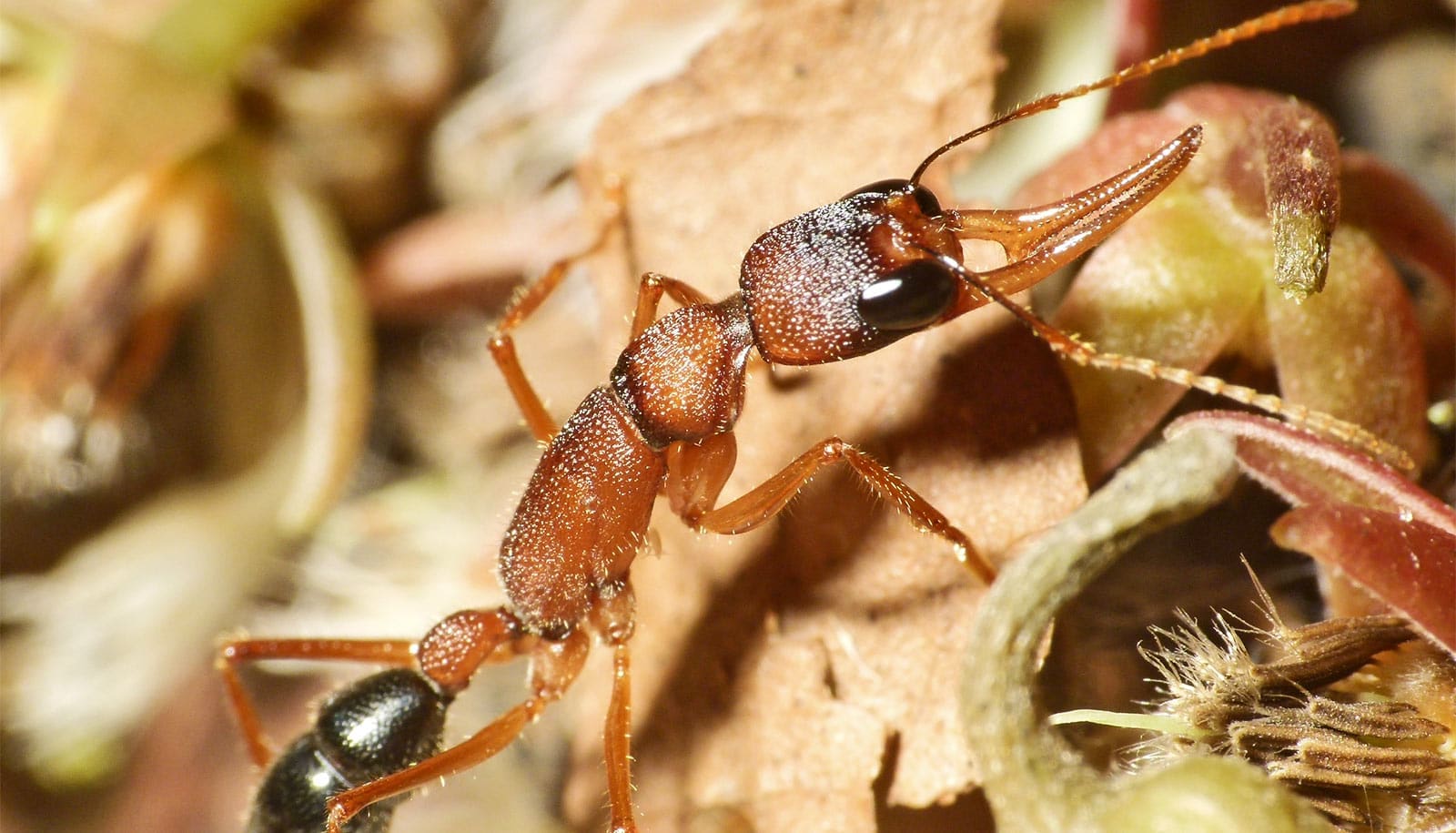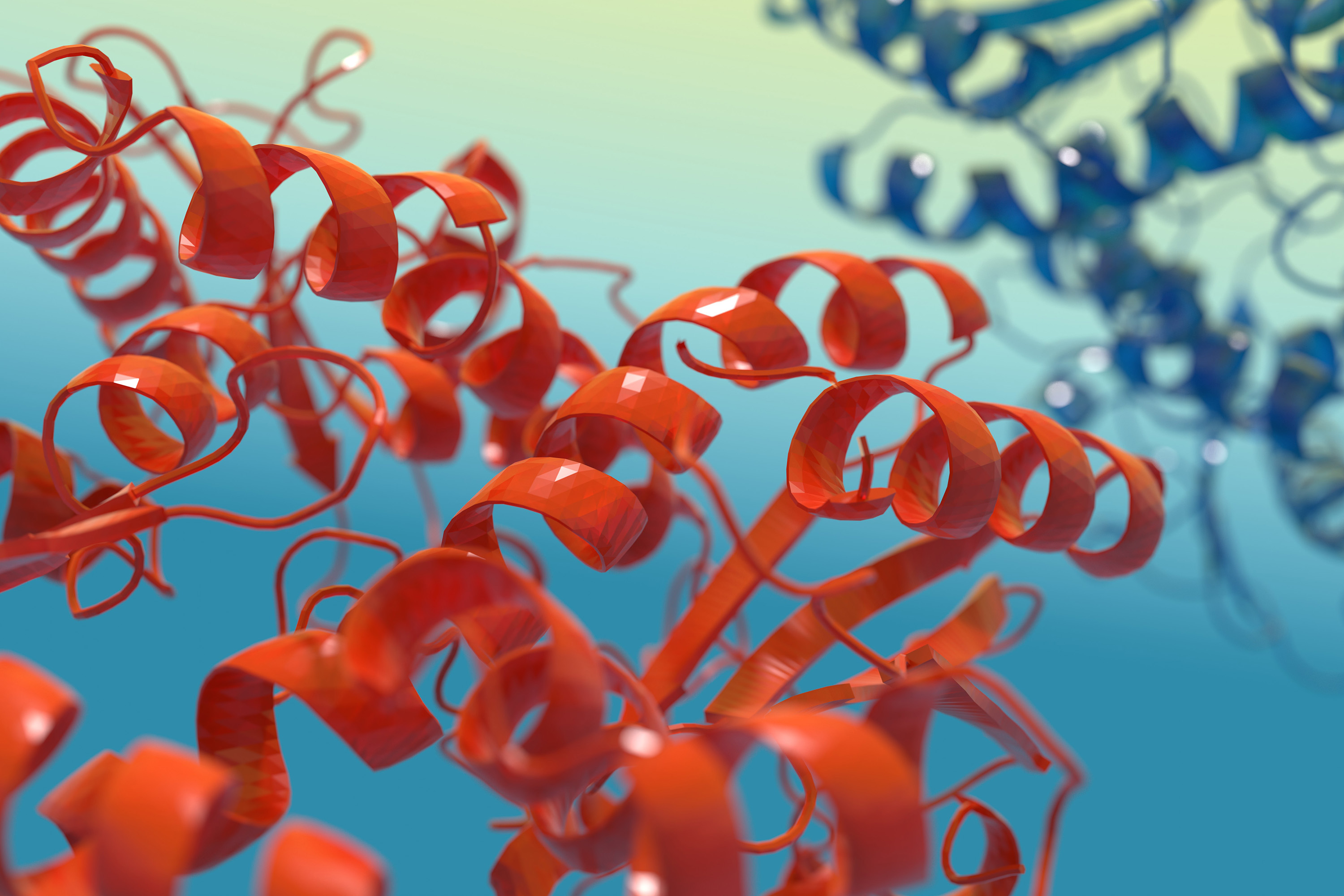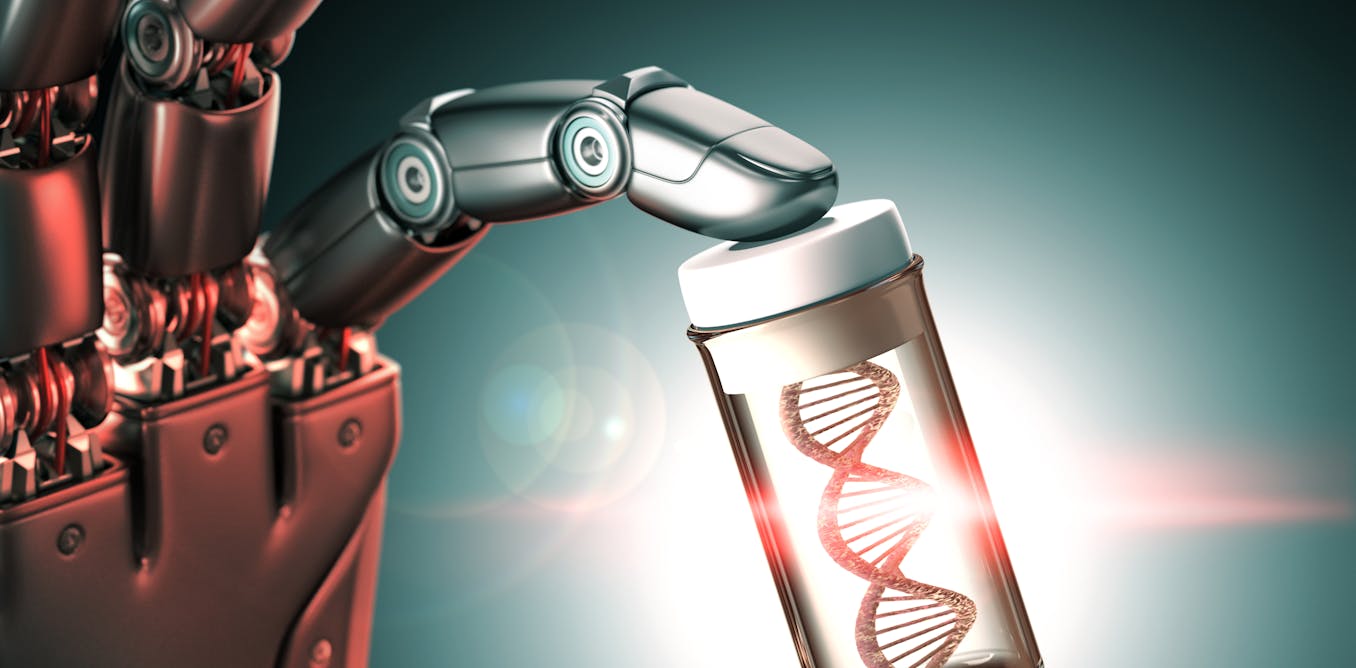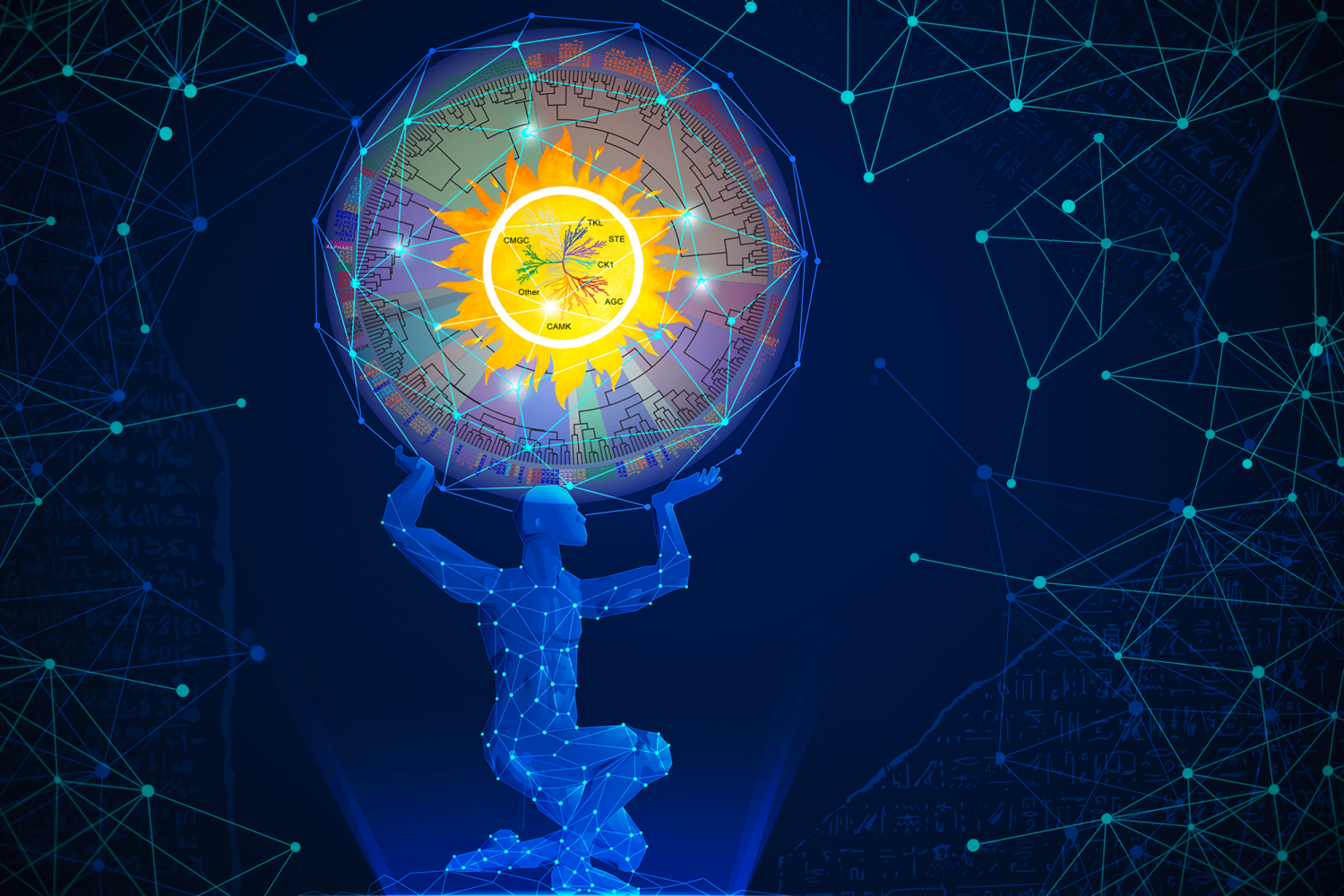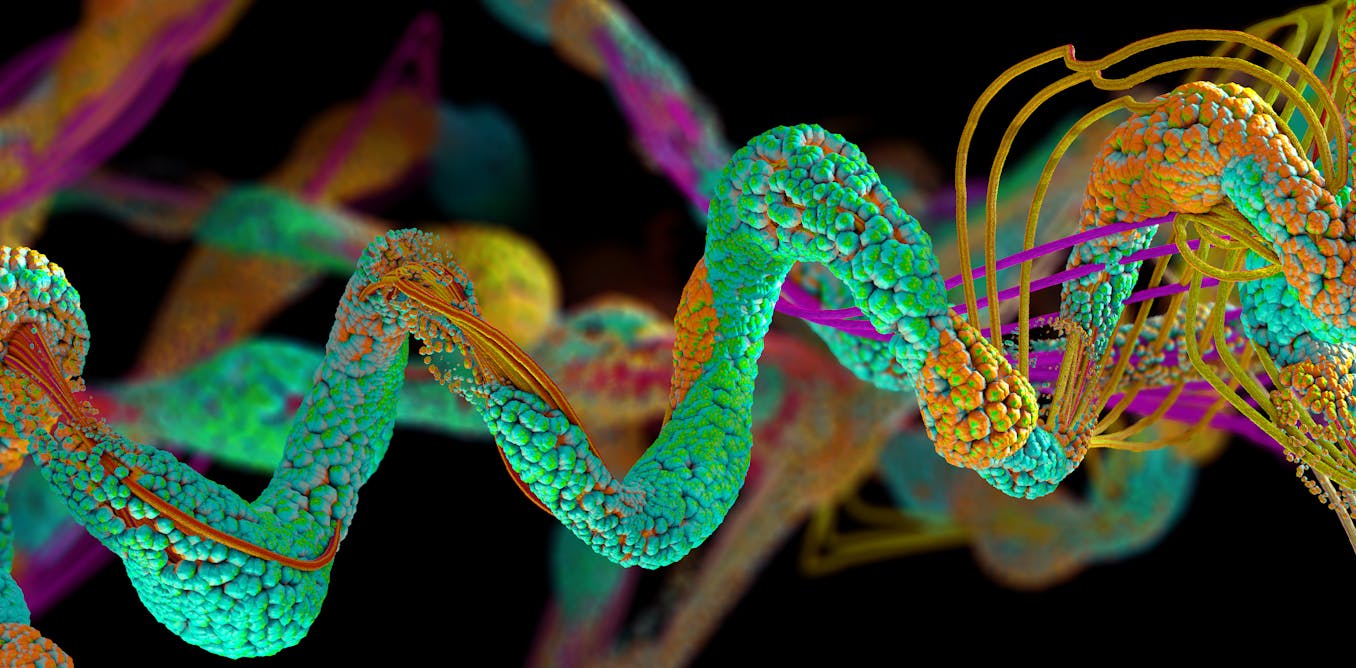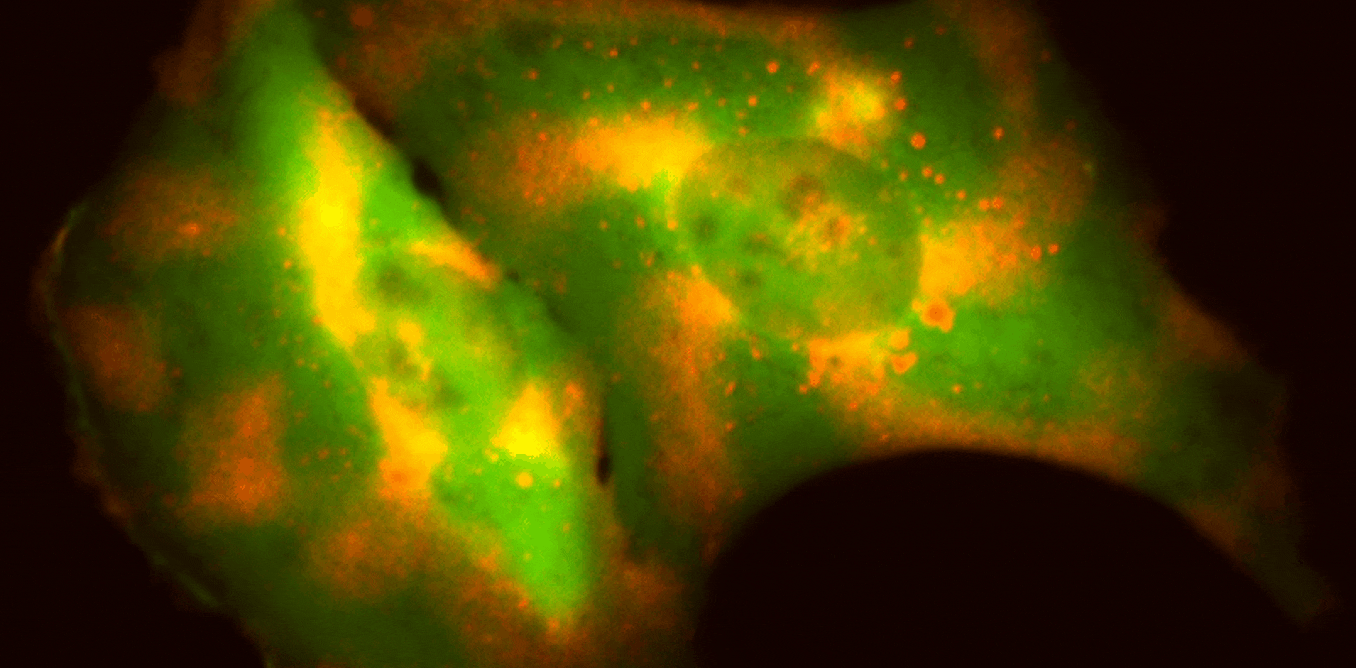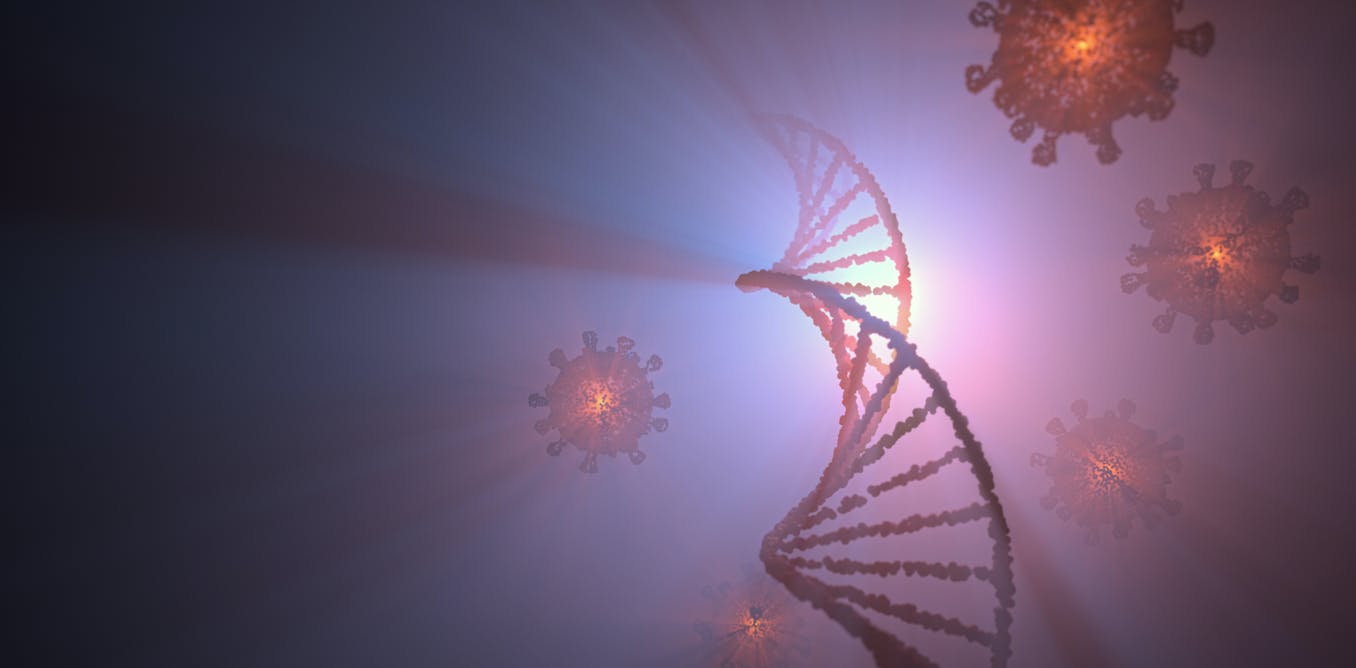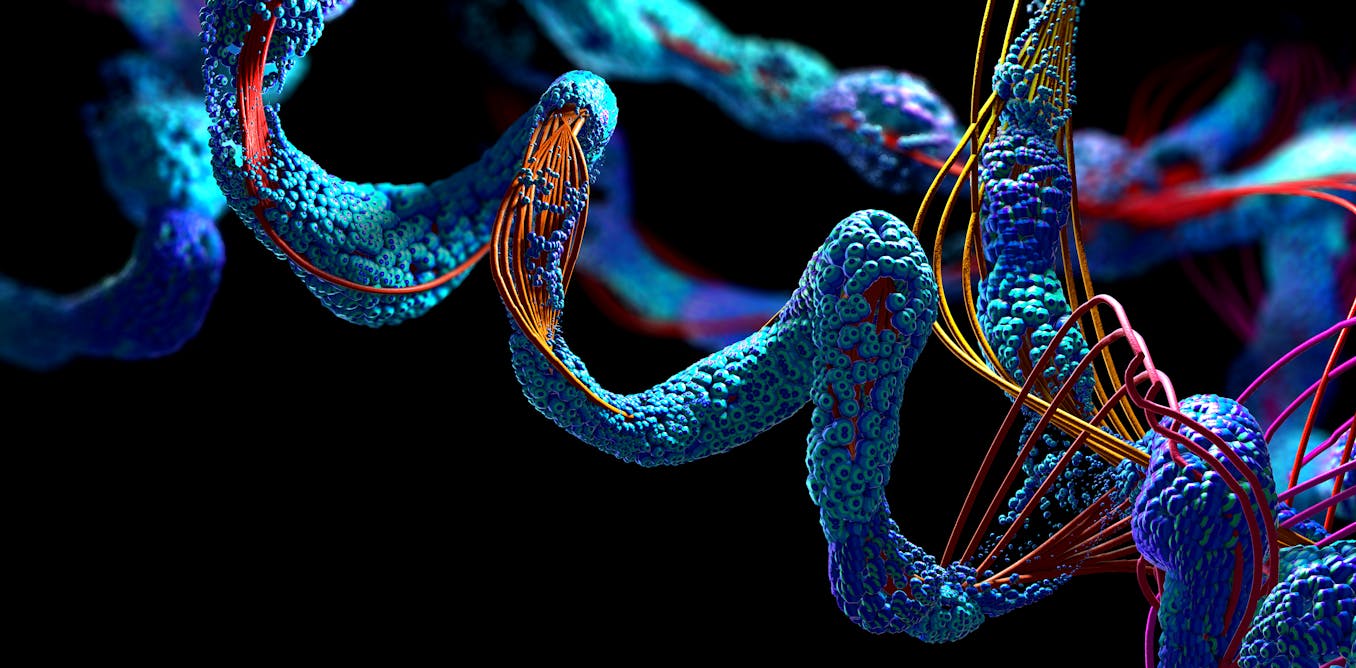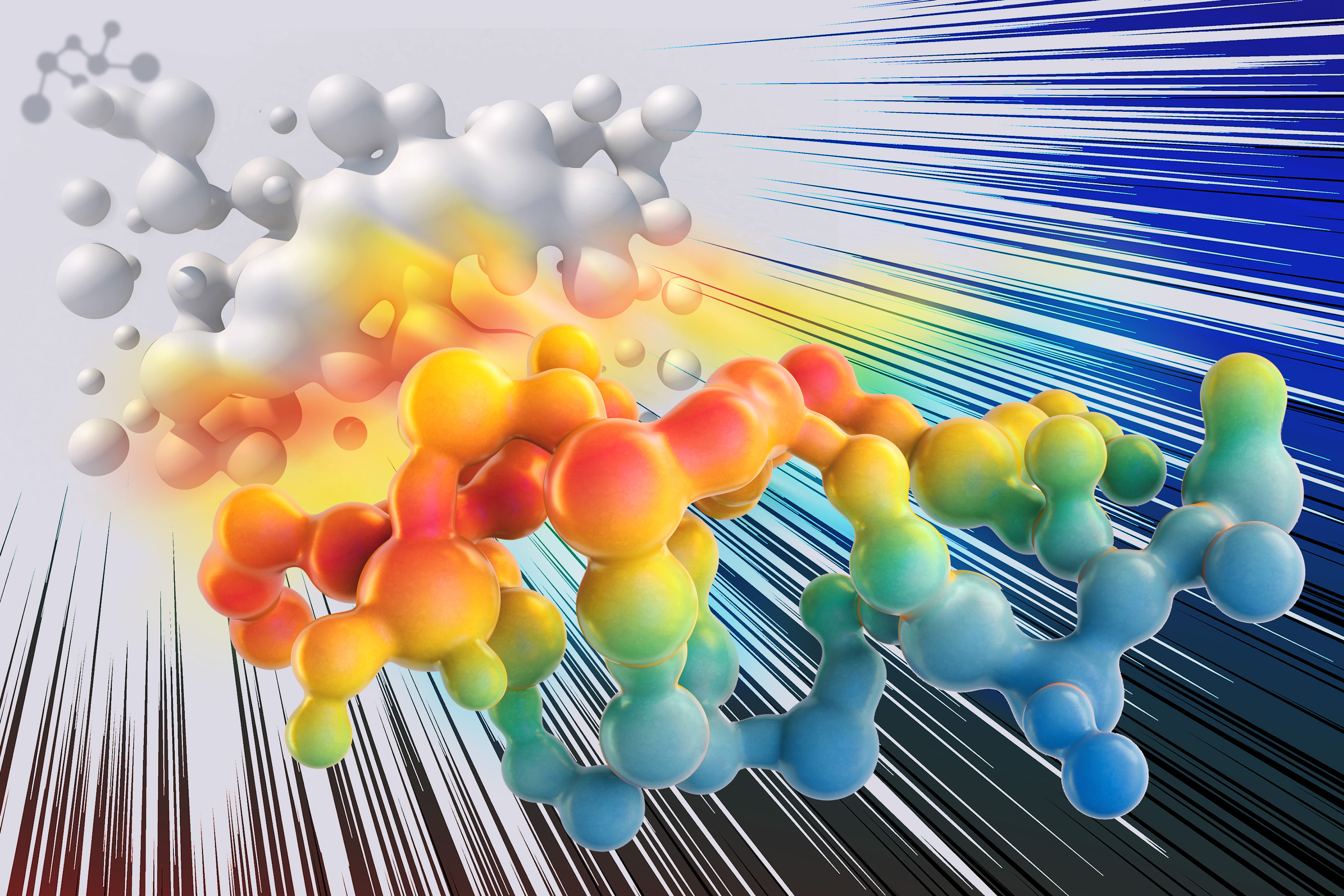AI plus gene editing promises to shift biotech into high gear
AI has learned the ins and outs of proteins. Gene editing gives scientists control of life’s molecular machinery. Together they could lead to a revolution in biotechnology.
Marc Zimmer, Professor of Chemistry, Connecticut College •
conversation
June 6, 2024 • ~8 min
June 6, 2024 • ~8 min
An AI tool for predicting protein shapes could be transformative for medicine, but it challenges science’s need for proof
Science has a need to verify results, but DeepMind’s protein prediction tool doesn’t work this way.
Sam McKee, Tutor and researcher in Philosophy of Science, Manchester Metropolitan University •
conversation
May 31, 2024 • ~7 min
May 31, 2024 • ~7 min
Engineering cells to broadcast their behavior can help scientists study their inner workings
Researchers can create ‘single-cell radios’ using bacterial proteins to transmit the invisible activities within cells.
Scott Coyle, Assistant Professor of Biochemistry, University of Wisconsin-Madison •
conversation
May 31, 2024 • ~5 min
May 31, 2024 • ~5 min
Viruses are doing mysterious things everywhere – AI can help researchers understand what they’re up to in the oceans and in your gut
Scientists are discovering viral genetic sequences in the wild faster than they can analyze them. A kind of ChatGPT for proteins can help make sense of all that data.
Libusha Kelly, Associate Professor of Systems and Computational Biology, Microbiology and Immunology, Albert Einstein College of Medicine •
conversation
May 15, 2024 • ~7 min
May 15, 2024 • ~7 min
AI system can predict the structures of life’s molecules with stunning accuracy – helping to solve one of biology’s biggest problems
The AI model can predict structures for a vast array of the proteins used by living organisms.
Richard Bayliss, Professor of Molecular Medicine, School of Molecular and Cellular Biology, University of Leeds •
conversation
May 10, 2024 • ~8 min
May 10, 2024 • ~8 min
/
27


